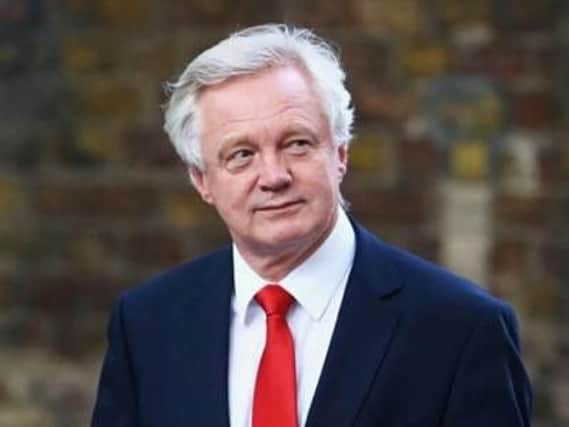MPs vote in favour of triggering Article 50 next year


In the first ever Parliamentary vote on the Government’s timetable for withdrawing from the European Union, a total of 448 MPs voted in favour of the proposals.
The result marked a reversal in the Prime Minister’s fortunes, after she faced the threat of up to 40 Tory MPs revolting in a Labour debate about Brexit policy.
Advertisement
Hide AdAdvertisement
Hide AdBut the triumph came at a price, as Brexit Secretary David Davis agreed to set out the Government’s “strategic plans” for negotiations ahead of triggering Article 50.
The symbolic vote, which prompted by a Labour opposition motion, was approved by Parliament with a majority of 373.
It came at the end of a six hour debate, that was initially expected to see dozens of Tory MPs join Labour in calling on the Government to publish its Brexit plans.
In the end, just one MP – the former Chancellor Ken Clarke – voted alongside a handful of Labour rebels to reject an amended motion which committed Parliament to supporting the March deadline for triggering Article 50.
Advertisement
Hide AdAdvertisement
Hide AdThe remainder of Conservative and Labour MPs either voted in favour of the Government’s plans or abstained.
Throughout the debate, both Labour MPs and pro-EU Tory MPs made it clear to the Government that they expect to be given sufficient details of the strategy in return for their support.
Shadow Brexit Secretary Keir Starmer set out a series of requirements, including that the plan must say whether ministers will seek membership of the single market, and whether there will be a transitional deal.
Former Labour leader Ed Miliband stressed that the strategy must consist of “more than a series of hints”. While the chairman of the Brexit select committee, Hilary Benn called for clarity on membership of the Customs Union, the status of EU university students and transitional trade arrangements.
Advertisement
Hide AdAdvertisement
Hide AdResponding to their comments, David Davis agreed to set out the Government’s “strategic plans” and to update Parliament on its progress “regularly”.
But he insisted this will not include any details that could “jeopardise” the UK’s position, or limit ministers’ “room for manoeuvre”.
Former Cabinet minister and leave campaigner Iain Duncan Smith welcomed the vote as an “historic moment”, claiming it had called Labour’s bluff.
“They have had to vote to give us a date, so that is a real blank cheque for the Government,” he said. “That means that no matter what happens now in Parliament, Labour is signed up to the principle that by the March 31 next year the Government will have been able to invoke Article 50.”
Lib Dem leader Tim Farron accused Labour and the Conservatives of “holding hands towards a hard Brexit”.
“I want democracy, not a stitch up,” he added.